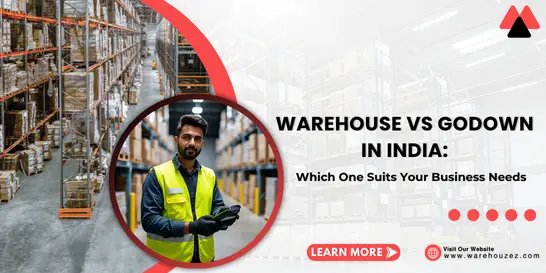How can National Logistics Policy Help Drive Growth in the Logistics and Supply Chain Sectors?
How can National Logistics Policy Help Drive Growth in the Logistics and Supply Chain Sectors?
The logistics and supply chain sectors are essential components of the global economy, providing essential services to countless businesses, industries, and customers. The success of these sectors is largely dependent on the effectiveness of National Logistics Policies, which can provide the framework necessary to ensure their growth. From establishing the infrastructure and regulations needed to facilitate efficient shipping processes to providing incentives and subsidies to encourage the development of new technologies, national logistics policies are essential for the continued success of this sector.
In this blog post, we will look at how these policies can help drive growth in the logistics and supply chain sectors.
An Overview of National Logistics Policy (NLP)
The National Logistics Policy (NLP) is a comprehensive policy framework designed by the Government of India to improve the country's logistics performance. The policy seeks to reduce the cost of logistics, improve the efficiency of the supply chain, and create an environment conducive to investment in the logistics sector.
The NLP covers all aspects of logistics, including the transport, storage, and warehousing of goods. It also covers the development of infrastructure, the promotion of technology, and the facilitation of trade. The policy also promotes the development of special economic zones (SEZs) for logistics activities.
Here are the key features of the National Logistics Policy:
Establishing a National Logistics Council
This is a key feature of the National Logistics Policy, which will be responsible for setting the overall framework for improving India’s logistics sector.
Diversifying the Logistics Sector
The policy aims to diversify India’s logistics sector by encouraging investments in modern logistics infrastructure, such as cold chains, warehousing, and transport systems.
Improving Connectivity
NLP also seeks to improve connectivity between India’s ports and international gateways, as well as with other major logistics hubs.
Developing Domestic Logistics Infrastructure
The policy encourages the development of domestic logistics infrastructure, such as roads, railways, and waterways, to improve the efficiency and cost-effectiveness of supply chains.
Encouraging Private Investment
NLP seeks to attract private investment in India’s logistics sector to spur innovation and development.
Enhancing the Regulatory Framework
The policy further seeks to enhance the regulatory framework in the logistics sector, including by providing incentives for businesses to invest in logistics infrastructure.
How National Logistics Policy (NLP) seeks to transform the future of the logistics and supply chain sectors
The National Logistics Policy (NLP) seeks to transform the future of the logistics and supply chain sectors by providing an integrated framework for the development of efficient, reliable and cost-effective logistics and supply chain systems. The NLP focuses on improving the infrastructure of the sector, which includes roads, rail, ports, airports, and waterways. It also seeks to improve the coordination and collaboration between stakeholders in the sector, including logistics providers, manufacturers and distributors, retailers, and other customers. The NLP also seeks to enhance the visibility and transparency of the entire supply chain, allowing for better tracking and monitoring of shipments. Ultimately, the NLP seeks to streamline the logistics and supply chain sector, so that it is more efficient, reliable, and cost-efficient, resulting in improved customer satisfaction and increased productivity.
What benefits does NLP offer?
Improved Intermodal Connectivity
National logistics policy can help to improve intermodal connectivity by providing incentives for investment in infrastructure, such as rail and road networks, as well as better coordination between different modes of transport.
Increased Competition
The policy can also help to increase competition by allowing for the entry of new players and encouraging the development of innovative business models.
Improved Efficiency
NLP can also lead to a more efficient use of resources by encouraging the use of efficient and sustainable transport technologies, such as electric vehicles, as well as encouraging the development of more efficient supply chain processes.
Improved Visibility
The policy can also help to improve visibility and transparency throughout the supply chain by encouraging the use of real-time data and analytics.
Increased Security
A national logistics policy can also help to increase security by encouraging the use of secure and reliable information systems, as well as encouraging the development of robust security processes.
How does the future of NLP look?
The future of the National Logistics Policy (NLP) looks very promising. As the global economy continues to expand, the demand for efficient transportation of goods and services also increases. The NLP works to ensure that the transportation of goods and services is well-coordinated, cost-effective, and safe. This includes the development of new transportation infrastructure and the implementation of safety regulations. Additionally, the NLP promotes the development of innovative technologies and the use of alternative fuels for transportation. The NLP also works to increase the coordination of transportation between states and nations, so that goods and services can be more efficiently moved across borders. With the continued development of the NLP, there is no doubt that the future of national logistics policy looks very bright.
How can Indian economy reap out benefits from the new national logistics policy?
The new national logistics policy of India will bring about various benefits to its economy. It will help in reducing logistics costs, streamlining the supply chain, and creating new employment opportunities. It will also reduce the cost of transportation and storage, resulting in lower costs for businesses and consumers. By improving the efficiency of the logistics sector, it will also lead to more efficient transportation of goods and services, thus helping to boost overall economic growth. Additionally, the policy will help in improving the country’s overall competitiveness in the global market, as well as making the Indian logistics sector more attractive to foreign investment.
It is evident that a well-crafted national logistics policy is integral to the growth of the supply chain and logistics sectors. It should lay the foundation for the development of an efficient and cost-effective transport and logistics infrastructure, as well as provide adequate support for the industry to make use of the latest technologies and improve operational efficiency. Furthermore, it should also contribute to the overall economic development of the country. Through the implementation of such a policy, the supply chain and logistics sector can thrive and play an even more integral role in the global economy.
Final Words
In conclusion, national policy can be a powerful tool to help drive growth in the logistics and supply chain sectors. By creating incentives for investments in infrastructure, technology, and training, governments can encourage businesses of all sizes to become more efficient and effective. This can have a positive ripple effect on the entire economy, from small businesses to large corporations. Ultimately, the benefits of national policy working in tandem with the logistics and supply chain sectors can be felt by everyone.



